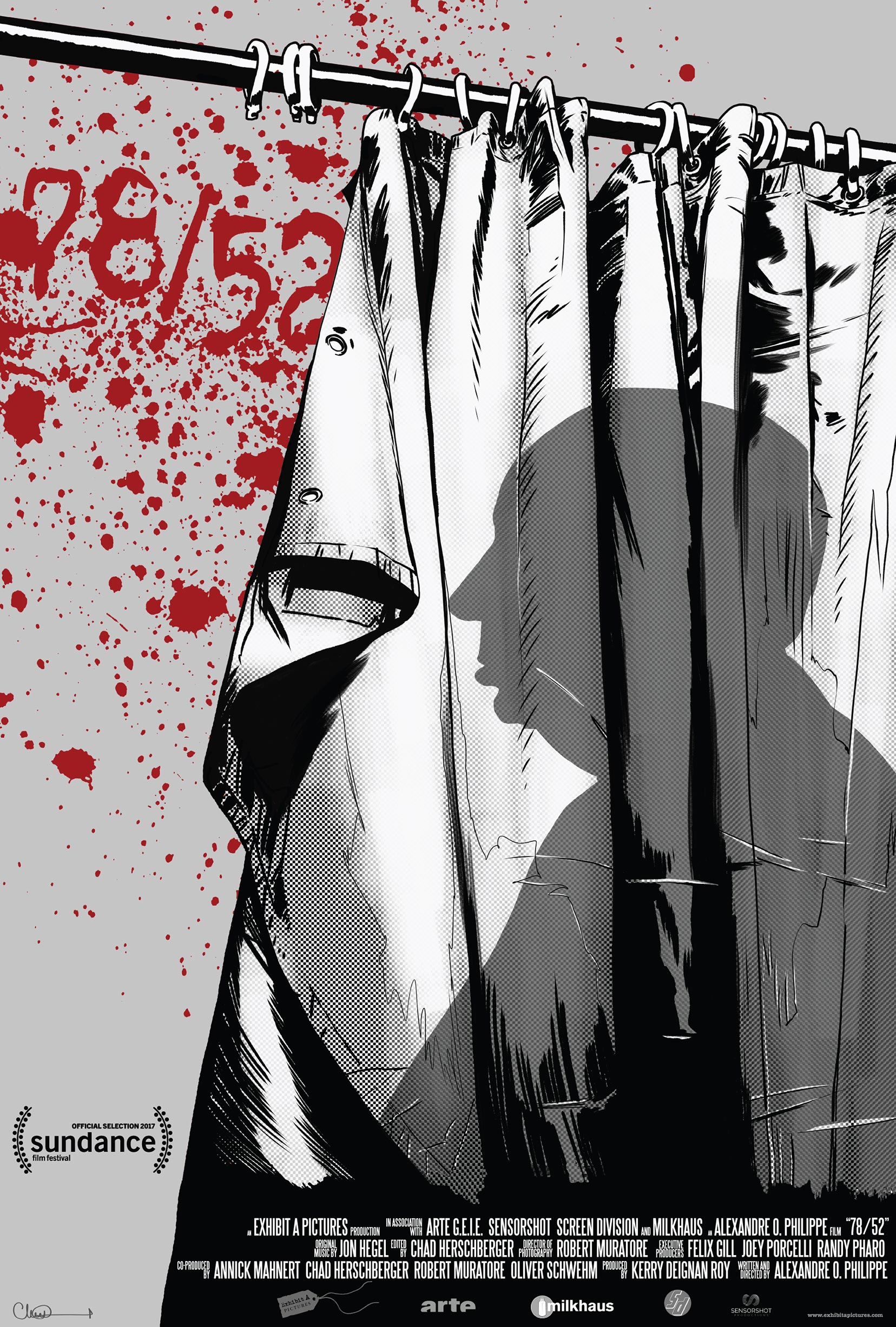Maybe the title is partially to blame. 78/52 refers to the number of camera setups (78) and the number of cuts (52, not counting the unseen cuts made by the butcher’s knife) that constitute the shower scene. That’s wonky enough to suggest a very close formal analysis, focusing on elements of craft—and this is a scene that would absolutely benefit from that sort of close look. Instead, one could easily assume, after watching just a few minutes of the movie, that its title refers to 78 anecdotes relayed by 52 talking heads. Philippe (The People Vs. George Lucas) shoots a wide variety of directors, actors, technicians, and academics talking about the scene (and often about Psycho more generally), in black and white, on the Bates Motel set at Universal Studios. Some are people you’d expect (Jamie Lee Curtis, Oz Perkins, Peter Bogdanovich); others are seemingly random (Illeana Douglas? Elijah Wood? The guy who directed From Dusk Till Dawn 2: Texas Blood Money?). A few offer interesting observations, while most state the obvious or just gush like fanboys. It’s a disappointingly conventional approach to a decidedly unorthodox subject.
Thankfully, the subject itself is all but inexhaustible. 78/52 is at its best in cinema studies mode, examining specific compositional and editing choices made by Hitchcock and his collaborators: negative space drawing one’s eye to where “Mother” will soon appear; the remarkable transition from an optical effect (the spiral around Marion’s dead eye) to “live” footage; a disorienting jump cut that makes it seem as if Marion’s body has been slammed into the wall. Broader topics, like the shower scene inspiring a marketing campaign that would permanently alter American moviegoing habits—before Psycho, people regularly showed up halfway through the feature, or even at the end, then stuck around for the next show to see what they’d missed—don’t get nearly as much attention as they merit. Did you know that one of Raging Bull’s fight sequences mimics the shower scene shot for shot? Philippe places the two side by side, which is fascinating, but moves on to the next item after just a few seconds, before Scorsese’s sly homage can even properly register. 78/52’s frustrating lack of rigor is epitomized by its final image, which is Psycho-related but has nothing whatsoever to do with the shower scene. Hitchcock invested far more thought, care, and skill in just 45 seconds of brutality than this entire feature-length tribute does to his genius.

 Keep scrolling for more great stories.
Keep scrolling for more great stories.
